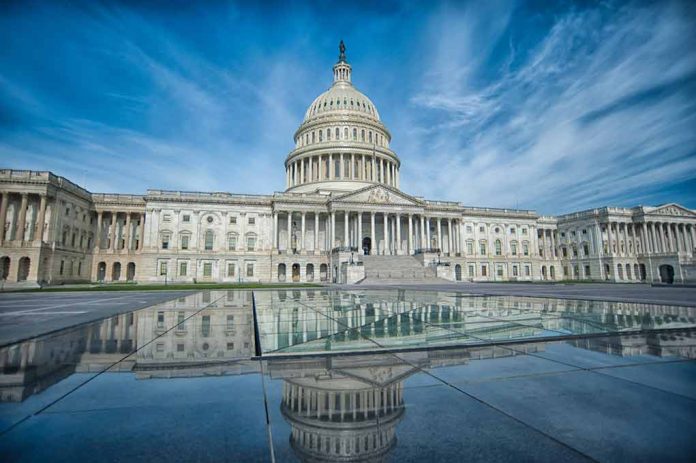
House Republicans move to slash $1 billion worth of Biden-era refrigeration regulations that businesses warn could devastate small store owners and restaurants nationwide.
Key Takeaways
- The House voted 214-193 to repeal Biden-Harris Administration efficiency standards for commercial refrigeration units with five Democrats joining Republicans.
- Republicans argue these regulations would cripple small businesses, particularly in rural areas, by imposing costs that could reach $1 billion.
- Energy efficiency advocates claim repealing the standards would increase long-term costs for businesses and waste energy capacity needed for economic growth.
- The resolutions now head to the Senate where they can pass with a simple majority vote under the Congressional Review Act.
- The vote represents the Trump administration’s ongoing efforts to roll back what Republicans see as excessive and burdensome federal regulations.
Republicans Lead Charge Against Costly Refrigeration Mandates
House Republicans, along with a handful of Democrats, voted to repeal Biden-era energy efficiency standards for commercial refrigeration equipment that they claim would impose excessive costs on small businesses across America. The two resolutions passed on March 27 targeted regulations for walk-in coolers and freezers as well as commercial refrigerators and freezers used in grocery stores, restaurants, convenience stores, and other businesses nationwide. The legislative effort was spearheaded by House Energy and Commerce Committee Chairman Brett Guthrie and Congressman Bob Latta, who rallied support to eliminate what they described as needless regulations that drive up prices without providing meaningful benefits.
The resolutions passed with votes of 214-193 for commercial refrigerators and freezers and 203-182 for walk-in coolers and freezers. This strong Republican turnout, bolstered by several Democrats who crossed party lines, reflects growing concern about the economic impact of regulatory overreach on businesses already struggling with inflation and rising operational costs. The effort is part of President Trump’s broader agenda to eliminate excessive regulations that hamper economic growth and add unnecessary costs to American businesses and consumers.
Small Business Owners Face Billion-Dollar Regulatory Burden
The real-world impact of these regulations would have been particularly devastating for small business owners who operate with tight profit margins. The Department of Energy’s own estimates suggested the standards would cost businesses approximately one billion dollars to implement – a staggering sum that would disproportionately harm rural communities where small business operations are essential economic lifelines. The regulations targeted essential equipment used by pharmacies, food banks, restaurants, and convenience stores, forcing expensive upgrades with minimal practical benefit.
“Walk-in coolers and freezers are essential for pharmacies, convenience stores, food processing facilities, food banks, restaurants, and many other establishments nationwide. This regulation, which had an estimated cost of a billion dollars, would have been crippling for businesses throughout the country, especially in rural areas. We must continue to push back against federal overreach, and I appreciate the support of my colleagues on this critical measure,” said Congresswoman Stephanie Bice.
Congressman Craig Goldman, who introduced one of the resolutions, emphasized the financial burden these regulations would place on small businesses: “Today, the House continues its efforts to repeal costly regulations imposed during the final months of the Biden administration. The passage of my resolution, H.J. Res. 75, is a key step in eliminating unnecessary regulations that would have increased costs for small businesses and consumers.”
Energy Savings vs. Economic Reality
Democrats opposing the repeal efforts argue that the efficiency standards would actually save businesses money in the long run through reduced energy costs. According to the Appliance Standard Awareness Project, the regulations could potentially save businesses $4.3 billion on utility bills over 30 years. However, Republicans highlighted the immediate and substantial costs of compliance, noting that some standards had a payback period of over 90 years – far longer than the practical lifespan of the equipment itself.
“The Biden-Harris Administration placed new and harmful regulations on commercial refrigeration units, yet another example of needless regulation raising prices for businesses and families while failing to provide cost savings or increasing food safety,” stated House Energy and Commerce Committee Chairman Brett Guthrie (R-Ky.) and Rep. Bob Latta (R-Ohio).
Tennessee Attorney General Jonathan Skrmetti expressed concerns about how these regulations were developed, stating: “After months of arm-twisting by DOE and advocacy groups, manufacturers relented, and appliance manufacturers and advocacy organizations submitted a new proposal. Most disconcerting is the lack of consideration for the average consumer, who undoubtedly will be most affected by appliance price hikes due to the new regulations.”
Congressional Review Act Provides Path Forward
The repeal effort was made possible through the Congressional Review Act, which allows Congress to overturn recently finalized federal regulations with a simple majority vote in both chambers. This legislative tool is particularly powerful because it bypasses the Senate’s typical 60-vote threshold needed to overcome a filibuster. The resolutions now head to the Senate, where Republicans and potentially some moderate Democrats could form the simple majority needed to send them to President Trump’s desk for signature.
This legislative action represents a significant victory in the ongoing battle against regulatory overreach that has characterized the Biden-Harris administration. By eliminating these costly and impractical standards, lawmakers are protecting small businesses from regulations that threaten their survival while offering questionable environmental benefits. The White House has estimated that the Biden administration’s regulations increased costs by $2 billion overall, making these refrigeration standards a prime target for repeal under the Trump administration’s deregulatory agenda.






















